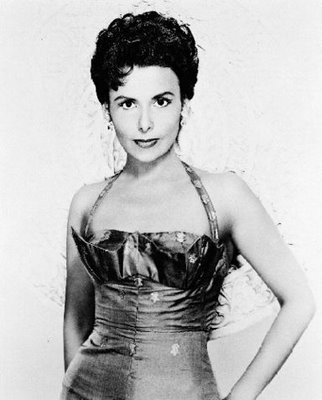Lena Horne Dies (1917 - 2010)
/Ayanna Nahmias, Editor-in-ChiefLast Modified: 02:35 AM EDT, 11 May 2010
An iconic figure in Hollywood and on stage, Lena Horne was a pre-segregationist pioneer who forced the film industry to reevaluate the casting of African-American women in roles other than stereotypically safe and culturally preferred maids and 'mammies'. Blazing a trail, Ms. Horne used her intellect, talent and ambition to forge a career that spanned six-decades. In Hollywood, she received previously unheard-of star treatment for a black actor.
Metro Goldwyn Mayer studios featured Ms. Horne in movies and advertisements as glamorous as were white beauties including Rita Hayworth and Betty Grable. Her legacy as a trailblazer is evidenced most recently in the careers of Halle Berry and Dorothy Dandridge, each of whom won roles and accolades portraying classy, sexy women who appealed to both white and black audiences.
Ms. Horne was an extremely talented and accomplished vocalist, and one of the first African-American actresses to sign a significant contract with a major studio. She continued to break barriers through her marriage to a Jewish conductor and bandleader Lennie Hayton in 1947. This was a bold move at a time when anti-miscegenation laws were on the books in 30 states.
"In the United States, the various state laws prohibited the marriage of whites and blacks, and in many states also the intermarriage of whites with Native Americans or Asians. In the U.S., such laws were known as anti-miscegenation laws. From 1913 until 1948, 30 out of the then 48 states enforced such laws. Although an "Anti-Miscegenation Amendment" to the United States Constitution was proposed in 1871, in 1912–1913, and in 1928, no nation-wide law against racially mixed marriages was ever enacted.
In 1967, the United States Supreme Court unanimously ruled in Loving versus Virginia that anti-miscegenation laws are unconstitutional. With this ruling, these laws were no longer in effect in the remaining 16 states that still had them." Source: Wikipedia
Mrs. Horne career straddled the pre and post Civil Rights Era. In interviews she expresses ambivalence about her role in the early stages of the movement, as well as her calculated approach to career advancement through her marriage to a man who could open doors that a black man could not.
This, however, did not change the fact that she was still treated with disrespect and experienced overt racism in the deep South. In 1957 she told the New York Times, "Mississippi wanted its movies without me. So no one bothered to put me in a movie where I talked to anybody, where some thread of the story might be broken if I were cut."
Yet, through sheer determination, talent and perseverance, she like her contemporaries, Nat King Cole and Harry Belafonte, commanded national and international recognition, acclaim and respect.
[youtube=http://www.youtube.com/watch?v=q1X7GS_291E]
It is nearly impossible to sum up the contributions of a person who has lived in the public eye for 92 years, but for me, her life as a woman and mother, as a human being who refused to be confined or defined by racism, and as a Jazz vocalist who was also an accomplished Broadway performer, she represents the epitome and essence of the American dream.
For a more in-depth review of her life and career, I recommend the Washington Post article linked below.














